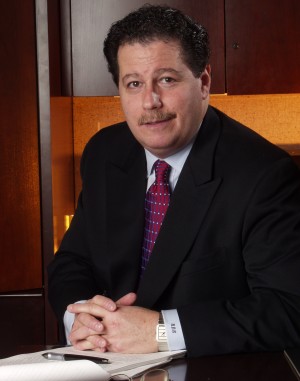In the early 1980s, Rick Rakow had been a successful direct mail list marketer for an ad agency that handled the IBM Selectric account. But as that typewriter product line faded from the scene, he found himself at a career crossroads. “I wasn”™t sure whether I should remain in the same sector or start something different,” Rakow said. Then came a defining moment that would shape his career, as he looked to rent a small office space in Westchester while he explored his options.
Rakow”™s experience in searching for that space and negotiating the terms of the lease was an eye opener. “At that time, I discovered that a small tenant like me was at the mercy of one of the largest real estate brokerage firms in the country that dominated the market and represented the interests of the landlords,” he said.
Coming from a customer-service, entrepreneurial background, Rakow saw an opportunity to fill a gap in the Westchester commercial real estate market by representing the interest of tenants. “Having gone through a negative experience, I felt I could do very well, sensitive to the fact that every tenant rightly feels that their space is the most important regardless of the size,” he said.
Rakow seized that opportunity in 1985 when he launched a business that would become one of the region”™s largest commercial real estate companies. Marking its 30th anniversary this year, Rakow Commercial Realty Group has assisted more than 1,000 tenants, buyers and sellers in Westchester and Fairfield counties as well as clients across the country and as far away as Vancouver. Under the leadership of Rakow, who serves as president and CEO, the firm leases, buys or sells properties ranging in size from 1,000 square feet to more than 250,000 square feet of office, retail and industrial space.
“I am very proud that we have built a profitable and sustainable business, one that today is helping hundreds of tenants every year,” Rakow said.
Looking back at how the firm”™s approach evolved, Rakow cited the epiphany he had as a young broker. “Basically, it occurred to me that unless special circumstances warranted it, a business owner would prefer remaining in the space instead of going through the trouble of moving to new quarters,” he said. So Rakow developed a model to help tenants remain where they were and to do so at better terms in a new lease that his firm would negotiate.
The commercial real estate market has changed dramatically during the three decades that Rakow has been in business. In the ”™80s, the Fortune 500s dominated the office scene and accounted for the largest share of the county”™s workforce. That gave way to the emergence of small and midsized firms and the transformation of those large Fortune office complexes into Class A office spaces for new tenants. Rakow cited commercial real estate developer Robert P. Weisz of RPW Group as a “genius who swam against the tide and took the risk to convert the former General Foods headquarters at 800 Westchester Ave. and other Fortune buildings along (Interstate) 287 into smaller and attractive spaces, offering value-added amenity packages for so many tenants.”
The makeover of the market turned out to be a plus for the overall economy, especially during the Great Recession, which started in 2008. “When you look elsewhere in New York state that experienced a void when large companies moved out, our region was fortunate to have a threshold of companies and firms that kept the market going during the sharp downturn in the economy,” Rakow said. He said the trend of companies getting by with fewer employees and needing less office space has abated somewhat, creating more equilibrium in the market, which is encouraging.
As much as he takes pride in having created a successful business and, in a sense, becoming a game changer who has leveled the commercial real estate playing field so tenants are equal with landlords, Rakow also is quick to cite the great satisfaction he derives from devoting his energies to causes that meet the urgent needs of others. That began shortly after his first child was born, when he started volunteering for the March of Dimes Birth Defects Foundation. As a result of serving on several committees and becoming chairman of the board of the Westchester division, Rakow helped raise more than $1 million for the organization.
Then, as chairman of the board for the Food Bank for Westchester, Rakow has led the nonprofit”™s efforts in providing more than 7.5 million pounds of food annually to more than 200,000 people in need in Westchester. “Shockingly, that is nearly one-fifth of the county”™s population, which tracks with the alarming numbers of hungry in our country,” Rakow said. “No one should go hungry at night and eradicating hunger needs to get done, which makes supporting the mission of the Food Bank so vitally important.




















Few companies realize just how valuable Rakow can be when renegotiating their lease. Theyre not just for moving!